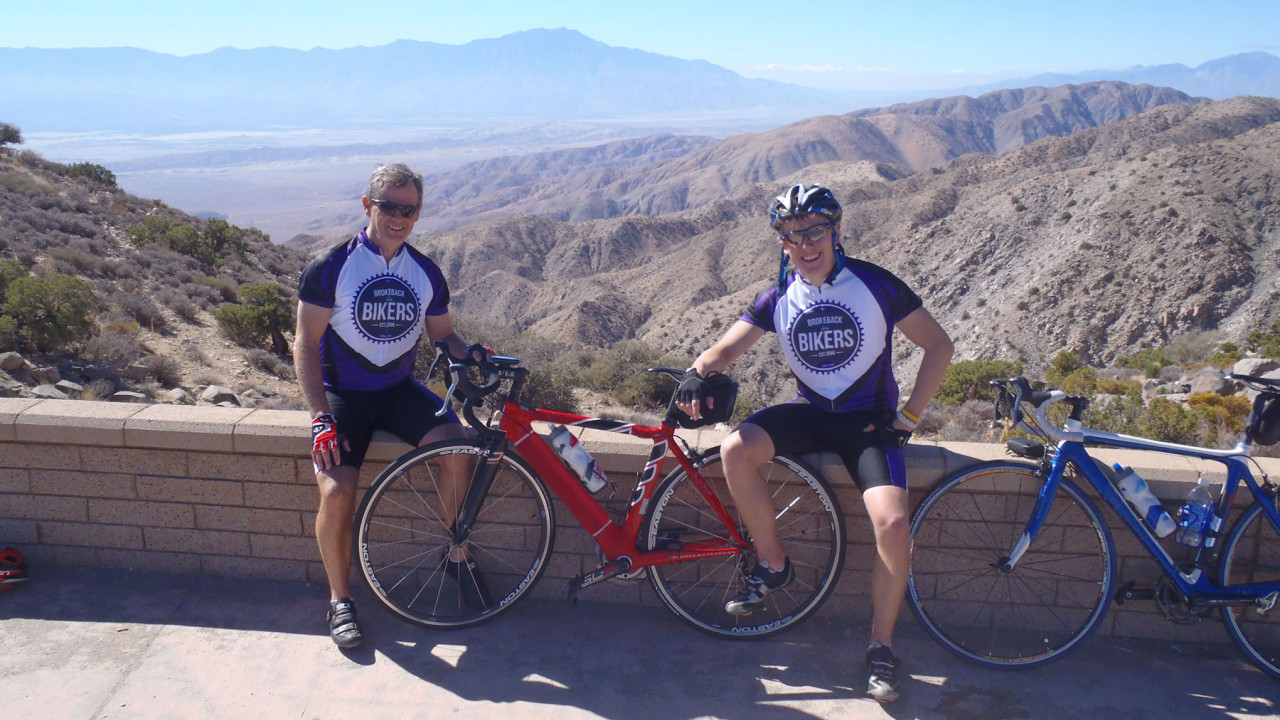St. Joseph’s launches education toolkit for concussion patients

London Ontario – It’s been almost nine years since Rob Staffen was in an accident that would change his life forever. Staffen was cycling down a mountain near Palm Springs, California in October 2012 when suddenly his road bike malfunctioned, catapulting him head-first into the rock-strewn desert landscape. The impact to his skull resulted in a traumatic brain injury.
A concussion is a brain injury caused by a hit to the head or body that forces the brain to move back and forth inside the skull. Known as an invisible injury, a concussion can affect a person’s physical, mental, behavioral and/or emotional health. While 80 per cent of people recover from a concussion, 20 per cent have persistent symptoms that can develop or worsen over time.
If people stop activity all together, it can delay their recovery. But if they push themselves too hard, it can intensify concussion symptoms. To help patients get back to living full lives, a health care team in St. Joseph’s Health Care London’s (St. Joseph’s) Acquired Brain Injury (ABI) Outpatient and Outreach Program at Parkwood Institute has developed a free online toolkit for people to use at home.
“Patients like Rob who suffer with persistent concussion symptoms often need tools and therapies to help them self-manage their condition,” says ABI Program Coordinator Saagar Walia. “We have several programs and services that introduces patients and their family caregivers to many of these resources, but we also know there are others in the community and across our region with concussions who could benefit from the strategies developed here at Parkwood Institute. The most exciting part about this toolkit is that it was co-designed with patients and families and made possible by generous donations from former patients and several community partners. So many people and organizations have joined together to make this happen.”
The ABI Education Toolkit, launched February 1 includes:
MyBrainPacer™ App: Much like points tracking used by dieters to monitor food choices, through MyBrainPacer™ App, users can assign values to tasks like driving, grocery shopping, screen use and exercise so they can plan and pace their daily activity. Individual users are given a total number of points per day that will keep their symptoms in the “safe range” and are encouraged to increase their points as their recovery progresses. The app is based on St. Joseph’s Pacing and Planning Program, which has helped hundreds of St. Joseph’s rehabilitation patients achieve their recovery goals. MyBrainPacer™ was made possible through funding provided by the Cowan Foundation and other community supporters through St. Joseph’s Health Care Foundation.
“In 2015, we recognized the great potential of the work being done by St. Joseph’s Health Care Foundation in London and the Parkwood Institute around reducing symptoms for those experiencing post-concussion syndrome,” explained Mary D’Alton, Executive Director, The Cowan Foundation. “We are pleased to extend our support for the second phase of this ground-breaking project.”
“Made possible by innovation, research, and collaboration, this app has the potential to significantly impact those living with a brain injury or concussion.” Says Heather McLachlin, President, Cowan Insurance Group. “We are proud to support this project since this app is a great tool to empower those struggling to continue their daily activities and will provide a clearer path to recovery. This tool will not discriminate on who it can help, the broad reach of this tool to various audiences is one of its greatest assets.”
Concussion Care video series: The Concussion Care video series is the brainchild of Jill Wright, a former patient who suffered a concussion after hitting her head on a granite countertop. The persistent symptoms Jill suffered after affected every aspect of her life and she found it hard to find persistent symptom management resources in a timely manner to help her manage. She decided to combine her personal experience and professional background in creating educational resources to help others rehabilitating from acquired brain injury. Philanthropic funds at the London Community Foundation’s Making A Difference family fund were used to create these videos geared to improve concussion care for others needing or awaiting guidance. The videos include tips and evidenced-based resources from St. Joseph’s ABI Program team and testimonials of lived experience from patients.
Mindfulness podcast series: Being mindful is an important part of recovering from a concussion as it promotes overall physical and mental well-being. Concussion survivors can utilize this series of audio podcasts together, or individually to help them navigate through the principles of mindfulness.
Staffen credits the lessons he learned as a patient at St. Joseph’s with helping him get his life back on track. “Without the team at St. Joseph’s Parkwood Institute, I’m pretty sure I wouldn’t be where I am today,” he says. “The tools they provided helped me balance my life, so I can stay active but keep my symptoms under control by resting when I need to. With their guidance, I was able to return to work and resuming my passion for road biking. I’m not totally recovered, but I can do the things I love—I just have to know my limits, which is perfectly OK.”
-30-
For more information:
Kelsi Break
Communication Consultant
519.646.6100 ext. 64792
@email